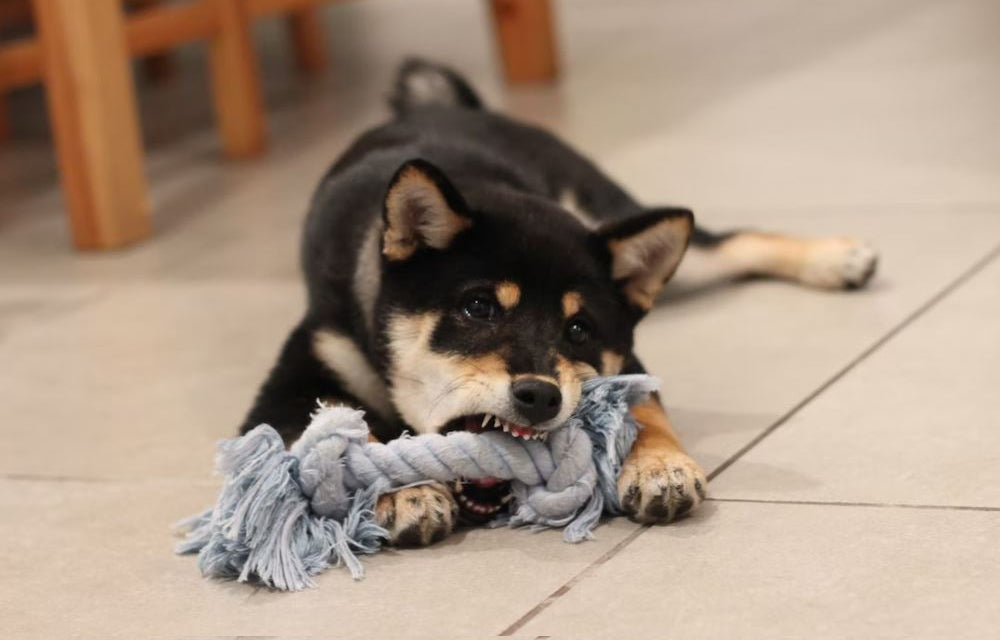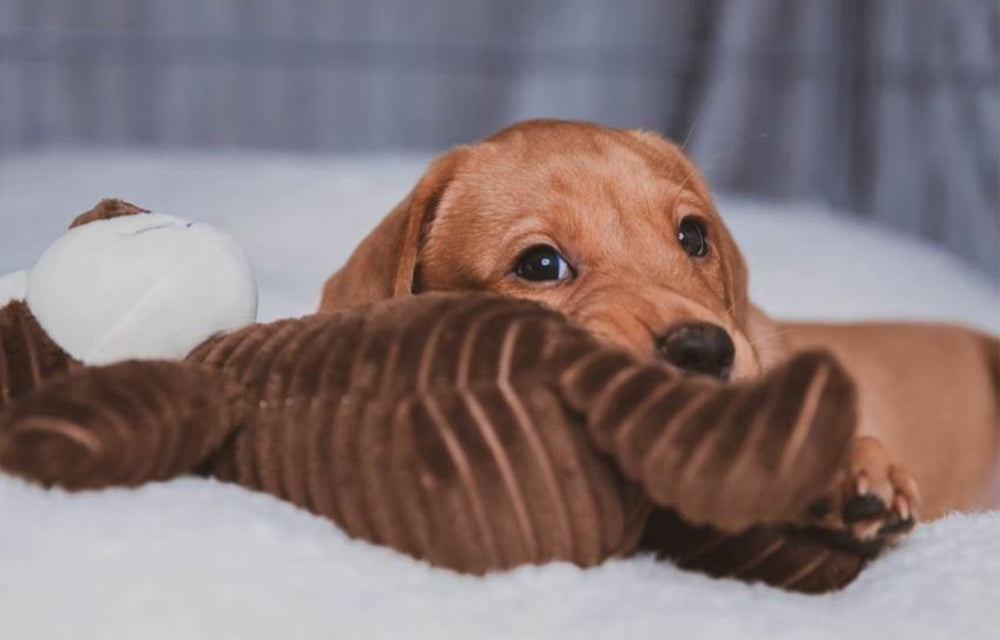How to Stop Puppy Biting

Have you ever gone through the “puppy biting stage?”
It can be challenging to say the least. Of course, we love all those puppy kisses and snuggles. But there is one major downside to bringing home a new puppy, and that is their tendency to bite.
Those little teeth are sharp!
Luckily, the puppy biting stage won’t last forever. To help dog owners speed up the process and teach their fur babies not to bite, ABBIDOT has put together a step-by-step guide.
Let’s get started.
Why Do Puppies Bite?
To begin, you might think your puppy is biting you to act out or be “bad.” However, this couldn’t be further from the truth! Puppies bite, chew, and mouth for all sorts of reasons.
Teething
The most common reason why puppies bite is due to teething, when a puppy’s teeth push up through the gums. This can hurt, so they bite to relieve discomfort.
Play
Similarly, dogs use their mouths to explore and learn about the world. When a puppy is playing with littermates or human family members, they sometimes accidentally bite too hard during playtime, before knowing what’s acceptable and what isn’t.
Overstimulation
Third, puppies lack self-control. Afterall, they are just babies! Sights, sounds, and smells can overstimulate their nervous systems and result in biting.
Frustration
Lastly, puppies who get annoyed can nip. For instance, being touched for too long or having their fur pulled can end in a quick bite out of frustration.
4 Tips for Training a Puppy Not to Bite

The good news is the biting stage is relatively short. Most puppies stop biting around the age of 3 – 5 months. However, the American Society for the Prevention of Cruelty to Animals recommends doing the following to help teach your puppy that hard biting is NOT okay.
Give Your Puppy Toys to Chew On
If your puppy’s gums are sore from new teeth coming in, offer them a rubber chew toy, cold teether, or frozen treats. Additionally, noncontact toys (such as a tug rope or frisbee) will minimize the risk of you getting bitten on the fingers, hands, and feet.
Redirect Biting
Is your puppy still chomping down where they shouldn’t?
Prevent painful bites by redirecting their attention. Toys are a good option. The next time your furball comes running up to you and tries to bite, hide your hands or remove the object in question. Instead, throw a toy for them to play with.
Give a “Timeout”
Third, your puppy could simply need quiet time to calm down. These “timeouts” are not meant to punishment. Actually, the opposite. It’s an opportunity to end the biting behavior and teach dogs that biting is wrong.
When your puppy bites too hard, use words like, “No! Ouch! Stop!” in a stern voice.
Then, either put your puppy in a crate or walk out of the room for 30 – 60 seconds.
This shows puppies that when they bite, the fun playtime is over, and they lose your attention…which is what they desire the most.
Praise Good Behaviour
Lastly, remember to always praise good behavior. Puppies are smart. With patience, verbal cues such as “good boy/girl,” love, cuddles, and lots of treats, your puppy will soon learn to stop biting and only mouth objects/people gently. Don’t give up! Using positive training methods is extremely important for long term bonding and trust.
Final Thoughts
Here at ABBIDOT, we know it can be stressful training puppies and dogs. That is why our online store carries the best products to help you transform your dog into a well-behaved companion.
For more helpful training tips, follow the ABBIDOT blog.
